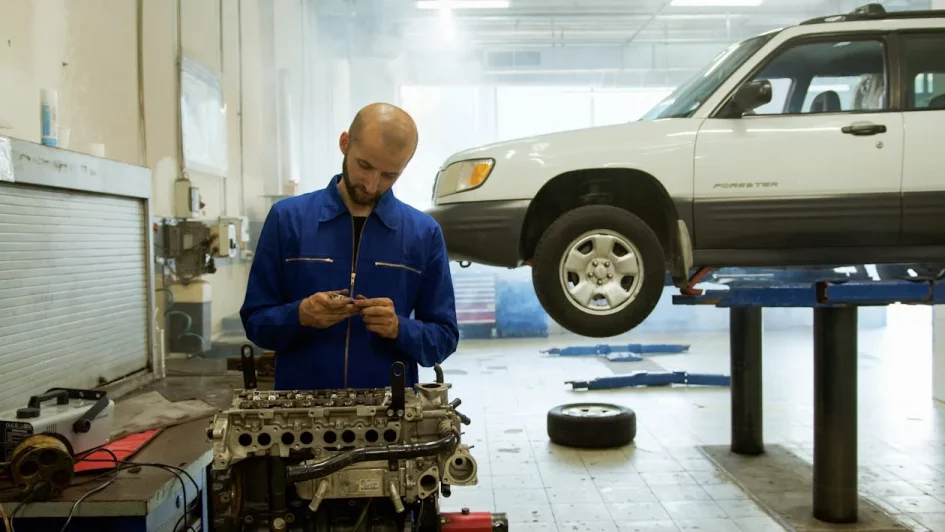Car repairs are inevitable, and some of the most costly repairs involve issues with the engine or transmission. When these vital components break down, it can leave you without transportation and with a hefty repair bill. For many, auto repair loans provide a lifeline to get their vehicle back on the road quickly. This article will explore how you can use an auto repair loan to cover the expenses of fixing your engine or transmission.
Common Engine or Transmission Problems Requiring Repair
Engines and transmissions are complex systems, and when they fail, the repair costs can quickly escalate. Common issues include engine misfires, oil leaks, transmission slippage, and grinding gears. These problems are not only dangerous to ignore but also costly to fix. A malfunctioning engine or transmission can lead to further damage, increasing the total repair bill if left unattended.
Costs Associated with Engine or Transmission Repairs
The costs for engine or transmission repairs vary based on the make and model of your car, as well as the severity of the issue. Minor engine repairs, such as replacing a worn-out timing belt, might cost a few hundred dollars, while major overhauls can range from $3,000 to $7,000. Transmission repairs are similarly expensive, often falling between $1,500 and $5,000, depending on the type of vehicle and the extent of the damage. Such high costs can catch you off guard, which is why many consider auto repair loans.
What Are Auto Repair Loans?
Auto repair loans are personal loans designed to help individuals cover the cost of unexpected vehicle repairs, including major engine or transmission work. These loans allow you to borrow the necessary amount upfront and repay it in manageable installments over time. Since engine and transmission repairs can’t always wait, auto repair loans are a useful way to ensure you can afford critical repairs without delay.
Types of Auto Repair Loans Available
- Personal Loans: Offered by banks, credit unions, and online lenders, these are versatile loans that can be used for any purpose, including car repairs. They often come with lower interest rates for those with good credit.
- Credit Card Financing: If you have an available credit limit on your credit card, this could be an option for financing repairs. However, be mindful of higher interest rates compared to traditional loans.
- Auto Repair Shop Financing: Some repair shops offer financing directly to their customers. These loans are often convenient but may come with higher interest rates or shorter repayment terms.
- Payday or Short-Term Loans: While these loans are fast and accessible, they often come with extremely high-interest rates and should only be considered as a last resort.
How to Apply for an Auto Repair Loan
Applying for an auto repair loan is a straightforward process. Here’s a general outline of what to expect:
- Check Your Credit Score: Lenders often determine your interest rate based on your credit score, so it’s important to know where you stand.
- Compare Lenders: Look at different banks, credit unions, and online lenders to find the best interest rate and loan terms for your situation.
- Submit an Application: Most lenders allow you to apply online. You’ll need to provide personal information, income details, and proof of identity.
- Receive Approval and Funds: If approved, funds can be transferred to your account within a few days, allowing you to pay for your engine or transmission repair immediately.
Pros and Cons of Using a Loan for Engine or Transmission Repairs
Using an auto repair loan has its advantages, but there are also drawbacks to consider:
Pros:
- Immediate access to funds, allowing you to repair your vehicle without delay.
- Flexible repayment options with most loans, ranging from a few months to several years.
- Preserves your savings or emergency funds.
Cons:
- Interest costs mean you will pay more in the long run than paying out of pocket.
- Taking out a loan adds to your financial obligations, and missing payments can affect your credit score.
- Debt can accumulate quickly if you’re not careful with repayment.
Alternative Options for Financing Auto Repairs
While loans are a common solution for high repair costs, there are alternative ways to finance your repairs:
- Savings or Emergency Funds: If you have savings set aside, using that can save you from paying interest on a loan.
- Borrowing from Friends or Family: Although not always an option, borrowing from people you know can eliminate interest costs.
- Repair Shop Payment Plans: Some auto shops offer payment plans where you can pay for repairs over time without taking out a formal loan.
- Vehicle Warranty or Insurance: If your car is still under warranty or you have comprehensive insurance coverage, some or all repair costs may be covered.
Tips for Choosing the Right Auto Repair Loan
When selecting a loan for your auto repair, consider the following tips:
- Compare Interest Rates: Shop around to find the lowest interest rate possible to minimize costs.
- Check Repayment Terms: Choose a repayment plan that fits your budget, ensuring you can meet the monthly payments.
- Look Out for Fees: Watch for origination fees, late payment fees, and other charges that could increase the total cost of the loan.
- Evaluate the Lender’s Reputation: Always work with a reputable lender, especially when considering online loans.
Conclusion
Engine and transmission problems are among the most expensive car repairs, but they are necessary to keep your vehicle running safely. Auto repair loans can provide a practical solution for those facing unexpected repair bills. By researching your options and selecting the right loan, you can ease the financial burden of these repairs while keeping your car in good working order.
FAQ
- Can I get an auto repair loan with bad credit?
Yes, many lenders offer loans to those with bad credit, though the interest rates may be higher. - How long does it take to get approved for an auto repair loan?
Most lenders can approve loans within a few days, and some offer same-day funding. - Is it better to finance repairs through the repair shop or a bank?
It depends on the interest rates and terms. Shop financing can be convenient but might come with higher costs than a personal loan from a bank. - What happens if I can’t repay my auto repair loan?
Failing to repay your loan on time can result in late fees, increased interest rates, and a negative impact on your credit score. - Are there interest-free options for auto repair loans?
Some credit cards offer promotional 0% interest for a limited time, but these deals usually require good credit and careful repayment management.







